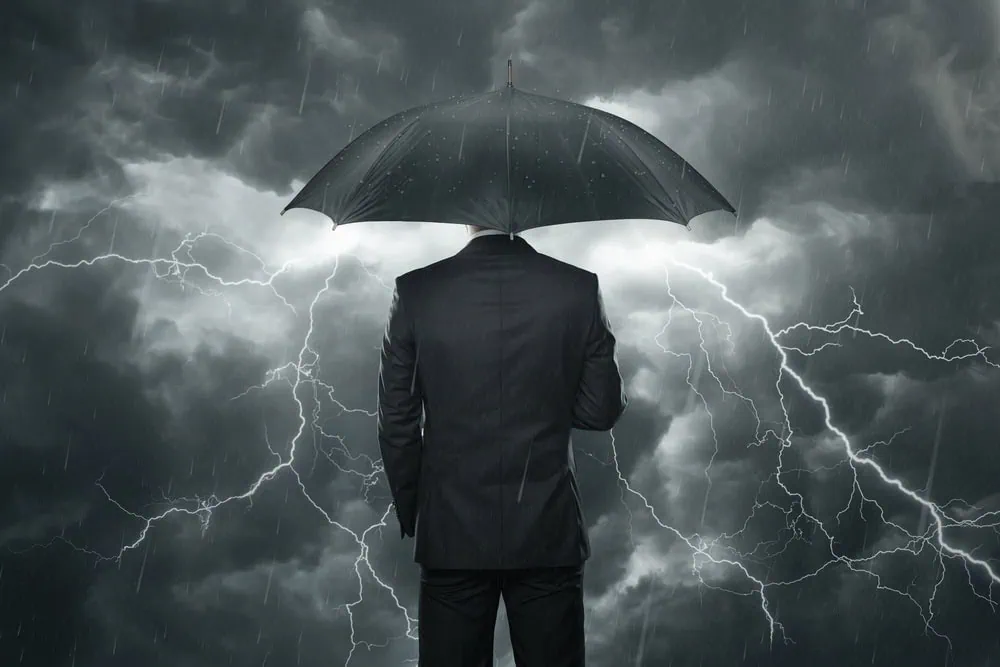Why Don’t Canadians Have Emergency Funds Anymore?

The article “Why Don’t Canadians Have Emergency Funds Anymore?” was originally published on The Financial Post on May 26, 2015.
It is frequently suggested that you should have a rainy day fund to cover three to six months of expenses. Based on the median Canadian family income of about $76,000 after-tax, a three- to six-month expense fund might be a whopping $19,000 to $38,000. How do you measure up?
The emergency fund is a great concept in theory. The problem, in practice, is that Canadians are either unwilling or unable to prepare financially for emergencies – and the trend is getting worse.
It’s no surprise that millennials have minimal emergency funds: only 41 per cent of millennials are working full-time and 26 per cent are working part-time jobs, according to a report from canadianmillennials.ca.
At the other end of the age spectrum some Canadians may fall short too, but generally they will have built up wealth (even if it’s meant for retirement) or credit (thanks to rising real estate prices and the resulting home equity) as last resorts.
The biggest demographic at risk in the event of an emergency is likely the middle-class, middle-aged family with high fixed costs and young dependents. These families may be moving into bigger, more expensive homes with higher mortgage payments right around the time many other costs pop up.
Consider braces and expensive dental work (hard to predict); after-school and sports programs (what if your kid is really good?); let alone home repairs and renovations (they are sometimes more necessary than optional). As kids get older, sometimes a one-car family turns into a two- or three-car family – and the car repairs and insurance costs multiply accordingly.
Those with higher incomes tend to have more of an emergency fund, which is intuitive. But a 2014 BMO Rainy Day Survey found that one-quarter of Canadians with more than $100,000 of annual income have less than $5,000 in their rainy day fund.
The same survey also saw a 42 per cent increase since 2012 in the percentage of Canadians with only enough savings to cover one month or less in the event of something unforeseen. And a CIBC poll by Harris/Decima found that 45 per cent of Canadians did not have an emergency savings fund at all.
The emergency fund epidemic has been building as our debt levels have reached record levels, particularly the oft-quoted debt-to-income ratio, which has peaked at 163.3 per cent.
There are some ways to create an emergency fund – even if you don’t have one specifically – instantly when an emergency arises. Health, disability and life insurance can make funds available, but sometimes fall short for employees with only group coverage. For the self-employed, it’s incumbent on you to consider and retain appropriate insurance coverage. That said, you sometimes have to wait to get the funds in your hands.
Paying required insurance premiums might be less risky than building an emergency fund and maintaining the discipline to leave it alone, but insurance doesn’t protect you against emergencies such as a job loss.
I’m all for having a game plan. However, I’m not a big fan of having your emergency funds sit idle in cash at one per cent cash when you’re paying three per cent on your mortgage, or six per cent on your line of credit, or 18 per cent on your credit card. It’s a losing proposition for you and a winning proposition for the banks who borrow from you at one per cent and lend it back to you at a profit.
My preference is that, if you have debt, you should have a notional emergency fund available to you in the form of credit – ideally a low-interest-rate secured line of credit. Then you can put your cash to work paying down debt, making RRSP/TFSA/RESP contributions and so on, instead of having it sit idle. This is a good reason to have a line of credit in place in advance of an emergency like a job loss, but it’s important to resist the urge to use it for non-emergencies.
Some critics caution against credit being your emergency fund for just this reason. And on that basis, I can appreciate that there is a certain psychological benefit of having an emergency fund readily available in cash that can help you sleep at night. This helps mitigate the temptation to use a credit-based emergency fund for renovations or a new car or a vacation and digging yourself into debt.
To me, the key with emergency funds is setting a target. You can take the steps, slowly but surely, to budget to build an emergency fund over the coming year if you’re short today.
Jason Heath is a fee-only Certified Financial Planner (CFP) and income tax professional for Objective Financial Partners Inc. in Toronto, Ontario.
This article is intended for educational purposes only and does not constitute personalized advice. The strategies and information discussed may not be suitable for your individual situation or may not be up-to-date and current. Please seek guidance from a licensed professional for advice specific to your circumstances.
Blog Contributors
Recent Posts
Subscribe to our newsletter
Want to stay up to date with our most recents articles?
Sign up below to receive emails whenever we have a new story!
